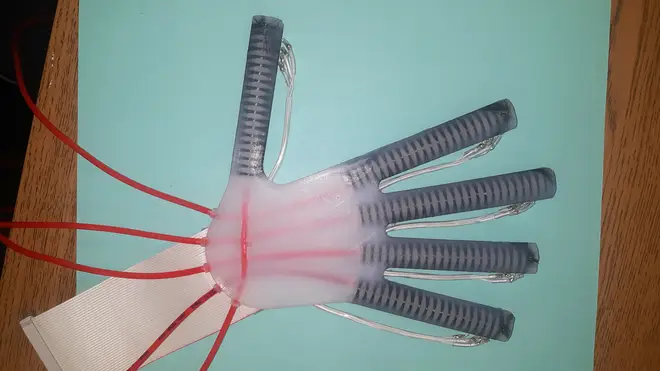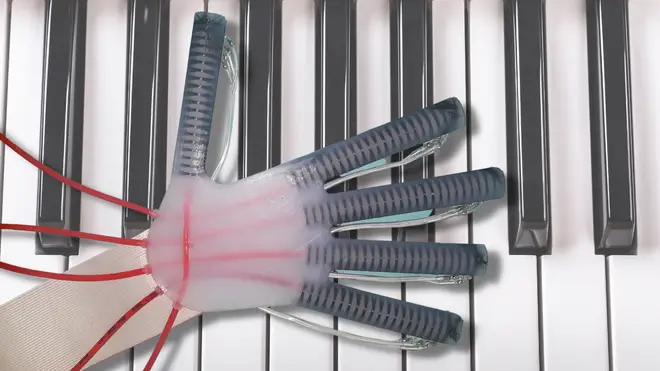On Air Now
Relaxing Evenings with Zeb Soanes 7pm - 10pm
29 June 2023, 17:18 | Updated: 29 June 2023, 17:34

An incredible step forward in scientific research could allow people who have suffered a stroke, to play the piano once more.
A pair of ‘smart gloves’ have been developed, that could be a “valuable tool” for helping stroke patients to play music again.
Created by scientists, the gloves could help patients who have lost, or have a reduced ability, to move their hands, fingers and wrists, to relearn manual tasks like playing the piano.
The exoskeleton gloves use AI, moving components called ‘actuators’ that allow the wearer to mimic natural hand movements, and touch sensors that allow the wearer to feel the objects they touch.
They work by “teaching” the wearer to play piano by “feeling” the difference between right and wrong movements, according to researchers.
Dr Erik Engeberg, a professor at Florida Atlantic University’s department of ocean and mechanical engineering, said: “We found that the glove can learn to distinguish between correct and incorrect piano play.
“This means it could be a valuable tool for personalised rehabilitation of people who wish to relearn to play music.”
Read more: ‘Bionic’ gloves allow injured concert pianist to play again after decades of lost dexterity

During the experiment, the gloves were taught to play the popular nursery rhyme ‘Mary Had a Little Lamb’ on the piano using pre-programmed movements, without anyone wearing them.
When they were tested again with a person, the gloves could detect where the wearer went wrong in their movements, enabling them to “understand their performance and make improvements”.
Professor Engeberg said: “While wearing the glove, human users have control over the movement of each finger to a significant extent.
“The glove is designed to assist and enhance their natural hand movements, allowing them to control the flexion and extension of their fingers.
“The glove supplies hand guidance, providing support and amplifying dexterity.”
Read more: Scientists find taking up piano lessons at older age could delay dementia onset

João Carlos Martins, 80, breaks down as he plays his piano with bionic gloves
Today in the UK, there are an estimated 1.2 million stroke survivors, almost two thirds of whom leave hospital with limb weakness, visual impairment, and language and communication problems.
The researchers in this experiment said further research is needed to improve its accuracy and adaptability, but they hope in the future, stroke patients and others with disabilities could use these gloves to bring back arm mobility.
Commenting on the work to PA, Juliet Bouverie, chief executive of the Stroke Association said: “We hope the results of this research will help build on our current understanding to bring about effective treatments to help rebuild lives after stroke.”
This isn’t the first time gloves have been used to help with piano-playing. In 2019, the 83-year-old pianist Brazilian classical and former child prodigy, João Carlos Martins, was fitted with a pair of bionic gloves that allowed him to take a seat at the piano once more, following a number of health issues and operations had taken away his ability to play (watch above).